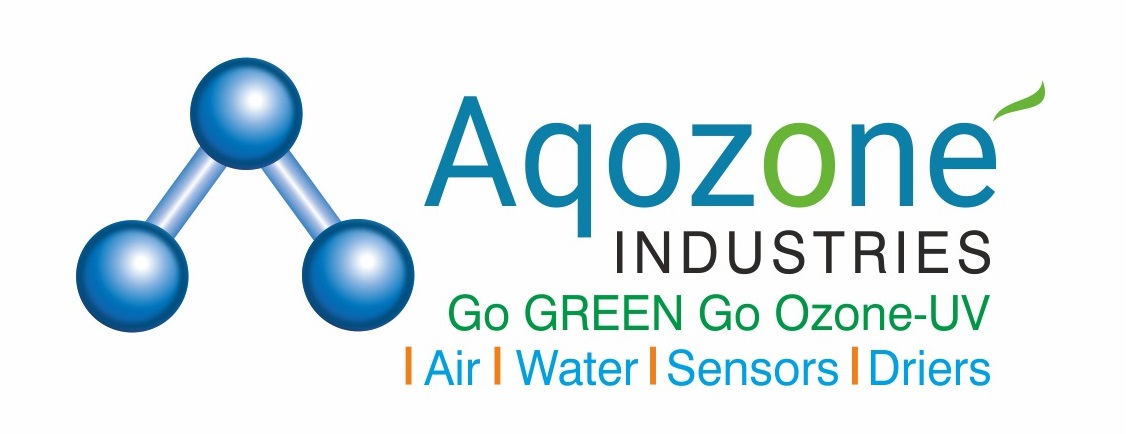Ozone for wastewater treatment
a.Used in Sewage Treatment Plants b.Used in Effluent Treatment Plants
Effluent wastewater from an industrial facility may carry a broad and variable range of contaminants, including BOD, COD, color, phenols, cyanides, sanitary waste and a host of complex chemicals. Ozone, in combination with UV and/or other physical, chemical or biological processes, has the potential to treat complex industrial wastes due to its strong oxidative nature. In combination with medium pressure UV, ozone exhibits the power of advanced oxidation for TOC reduction, as well as destruction of organics. Potential industries that can benefit from ozone and UV include pharmaceuticals, textiles, automotive, foundry, etc. In arid areas, due to water scarcity, treated wastewater can be used for a reuse application such as land or golf irrigation. Water recycling avoids water shortages and protects water resources. Water recycling is safe, environmentally sustainable and cost-effective for decision-makers who care about environmental resources. For operating cost reduction, municipalities and industry are smart to invest in reuse installations to reduce their fresh water consumption. DeBru ozone is used in different solutions to contribute to integrated water management. The industry uses bio and mechanical filtration for the bulk reduction of BOD/COD. By the filtration method, BOD/COD is reduced from 115,000 mg/L to 50-100 mg/L. Bio and mechanical filtration are becoming very expensive when it comes to reducing BOD/COD to a lower level. That is where hundreds of Water Treatment Plants (WTP) use ozonation. Ozone can be used as the final step in the wastewater treatment process because it is very effective as a water polisher. For instance, ozonation economically reduces BOD/COD to safe levels before discharge into the receiving body of water. Aside from reducing the processing costs, ozone systems will also help eliminate the penalties associated with contaminated water disposal. Further benefits include the implementation of a clean, environmentally friendly technology, increasing oxygen demand, and an improvement in aesthetic characteristics due to a reduction in turbidity.
Why ozonation is important?
Ozone is more effective than chlorine at killing viruses and bacteria. Also, the ozonation process required a short contact time (approximately 10 to 30 minutes). As ozone decomposes rapidly and completely, there are no harmful residues. Also, after ozonation, there is no regrowth of microorganisms, except for those protected by the particulates in the wastewater stream. Moreover, Ozone is produced onsite, and thus, there are fewer safety problems associated with shipping and handling. What are the advantages of ozonation in wastewater Treatment?
